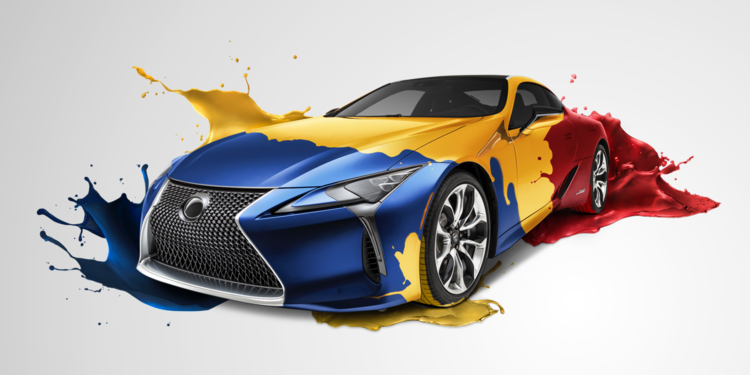Last year was hard for automakers and dealerships. Although sales topped 17 million vehicles in 2019, this number still represented a decline compared to 2018. With this lead-up, the year 2020 was already shaping up to be challenging for the auto industry. Then came coronavirus, transforming daily life and significantly affecting the economy. This pandemic is unprecedented in living memory, and it remains to be seen how it plays out and when it will end.
What is certain is that many people will be delaying large purchases like automobiles, and those who are searching for a new vehicle will be looking for non-traditional ways of purchasing. As such, the top automotive marketing trends of 2020 are those that harness the power of digital technologies to help shoppers safely connect to the vehicles and help dealers stay relevant in extraordinary circumstances.
1. GOOGLE SEARCH ENGINE OPTIMIZATION
There is no larger market than that provided by the internet, and there is no more powerful in that market than Google’s search engine. Automotive marketing aimed at putting cars in front of interested buyers will therefore need to consider how Google functions and take advantage of the opportunities presented by this mediating force.
Google matches users with content by collating user search inputs with webpages that have been processed through their algorithm. The better the content, the higher Google ranks the page. Sometimes, this can be a short-term strategy; car listings themselves can be tailored for SEO by including clear, concise, and accurate descriptions that match user queries. But, in general, SEO is a long-term marketing approach that focuses not on promoting a particular vehicle, but the dealership as a whole. By consistently creating content designed to capture valuable traffic in the long term, thoughtful SEO can solidify Google trust for years to come.
SEO success doesn’t happen overnight. But it is precisely this slow-burn strategy that makes it so valuable at this time; making SEO a central component of automotive marketing means setting the stage for ongoing success long after today’s unique challenges have passed.

2. XR EXPERIENCES
The internet has become an increasingly critical part of the car shopping experience for years. Via digital imaging, car shoppers are now able to see high-quality photos and videos of virtually any vehicle they want, any time they want, from the comfort of their home. Many dealers recognize this and offer well-stocked photo galleries for each vehicle in their inventory, allowing their websites to act as a kind of showroom. Truly forward-thinking dealers, however, take this idea to another level by integrating XR technologies.
Virtual reality allows viewers to see what it is like to sit in the driver’s seat or take a walk around the exterior using a VR headset. With augmented reality, users can project a vehicle into a real-world environment, shrinking it down to fit on a countertop or scaling it up to see how it looks in their driveway. Whether viewed through a specialized headset or an ordinary smartphone, XR assets provide a more immersive and compelling viewing experience than is possible with still images alone. While XR experiences offered by dealers have largely been viewed as a novelty or ‘extra’, the new norms of social distancing and isolation are showing that XR is far from a curiosity—it can be a powerful sales tool. As the true potential of these new technologies comes to light, virtual reality and augmented reality car showrooms will undoubtedly be amongst the top automotive marketing trends of 2020.
3. ONLINE CAR SALES
Even before the days of social distancing, many car buyers were hesitant to visit a car dealership, and dealers often offered some degree of online sales support, even if just the opportunity to chat with a sales representative. With social distancing becoming more widespread and some dealerships shutting their doors to protect the health and safety of their staff, savvy dealers will want to expand their capabilities to provide fully virtual sales experiences.
Extensive image galleries, customized videos, and virtual showrooms are all integral to connecting with car shoppers in our modern times. They offer innovative ways to bring the dealership into the customer’s home without the need for direct contact and can act as the first step of the car buying process. However, these features must be paired with technologies that allow salespeople and financing staff to engage customers remotely, whether to give a virtual sales presentation, negotiate a contract, or finalize financing.
Giving car shoppers a simple and convenient no-contact way of purchasing vehicles will become increasingly valuable in the months to come. After all, despite the undeniable changes that are happening throughout the world, the need for car shopping has not disappeared. What’s more, creating a sales structure that is safe for salespeople and other dealership staff gives dealers the ability to support employee health while allowing them to keep working.
MAKING THE MOST OF AUTOMOTIVE MARKETING TRENDS IN 2020
Automotive marketing trends are always dictated by what is happening in the world around us. While 2020 is undoubtedly presenting significant challenges, responding to those challenges in thoughtful and meaningful ways can help inform what that world will look like in the future. Dealerships that make the best use of the technologies available today can support car shoppers even in uncertain times. They can also fortify the future of their team by becoming more flexible, responsive, and making smart marketing investments that pay dividends for years to come. In other words, with the right strategy, dealers can put themselves on course for success and security long after this crisis has passed.

